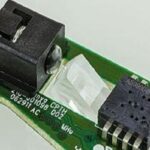4.5
- Webinar No: WBNR 1140
- PDH Units: 2
No data found for Custom Course Number
No data found for Custom Course Units
4.5
- Webinar No: WBNR 1140
- PDH Units: 2
Intended Audience: Electrical Engineers
Credits: 2 PDH Units
When: Wednesday 3/26. 2 - 4 pm EST
Designing Residential Grid-Connected Photovoltaic Systems
As the cost of electricity generated by a residential PV system is now below the cost of utility electricity, residential rooftop PV systems are now being installed at a rapidly increasing rate. The goal of this webinar is to present the underlying economics of solar electricity and then proceed with how to design the structural and electrical components of microinverter systems, optimizer systems and string inverter systems for residences. Detailed design examples, including wind load calculations and electrical calculations, are used to demonstrate compliance with relevant codes and standards. Emphasis is placed on HOW the systems work, since rapidly changing technology requires the ability to understand the specifications of various technologies as they emerge.References
- NFPA 70 National Electrical Code
- ASCE 7-16 Minimum Design Loads and Associated Criteria for Buildings and Other Structures
- Manufacturers Equipment Data Sheets and Installation Manuals
Date: Wednesday. March 26. 2025
Starts: 2 - 4 pm ET
Credits: 2 PDH Units
Learning Objectives
Upon completion of the course, you should understand the terminology and the economic, environmental and possible emergency or standby power availability benefits associated with design and installation of a PV system. Specific topics discussed are- PV Economics for 2023 – LCOE and Energy ROI
- Types of PV Systems – Stand Alone, Straight Grid Connected and Energy Storage Systems
- Sun and Equipment Basics
- Grid-Connected Options
- Code Compliant Design and Installation Requirements
- Wind Load Calculations
- Array Mounting Options and Calculations
- Electrical Design Examples for Microinverter, Power Optimizer and String Inverter Systems
- Code-Compliant Methods of Utility Interconnection
Special Webinar Instructions
After payment, please visit this webinar page, click "Start Course" and fill out the Webinar Registration Form. You'll receive email notification and details on how to join the webinar. You will then be able to access the webinar slides, test your system and receive webinar reminders. After completing the webinar requirements, your certificate of completion will be saved and available for download in your profile. We value your feedback! Please rate this webinar after completion.Group Discounts Available
Course Reviews
4.5
4.5
26 ratings - 5 stars12
- 4 stars14
- 3 stars0
- 2 stars0
- 1 stars0
Once completed, your order and certificate of completion will be available in your profile when you’re logged in to the site.
Ethics Courses
Webinar No: WBNR 1140
PDH Units: 2











Great course for a solid understanding of residential photovoltaic systems.
A good overview of how to design solar systems both electrically and mechanically.
Good presentation of a system design requirements.
Very good overview of the process following a format of a design review check list.
Very good overview course in PV design. Original posted slides were a little dated. Downloaded the posted updated slides the next day which helped greatly
The instructor is very knowledgeable and gets right to the key design elements. I feel more informed now about PV systems, and have a good vector if I ever design one of these. The wind loading was outstanding, and the software reference is very appreciated. Although the slides didn’t line up, they will be corrected and published. Not a big deal.
Good introduction to this subject. Covers various aspects siting considerations, types of systems and electrical and structural design.
You need to revise the test to correspond to the current course briefing slides.
Otherwise, I learned a lot and enjoyed the instructor and the course.
Cliff
Good overview of photovoltaic system design
Great webinar that covers everything you needed to know about designing a PV system.
Interesting, timely information provided. Professor Messenger is knowledgeable and attuned to his audience. It would be helpful if the slides were numbered and if sources were referenced at the end of the slides. But otherwise it was a well-executed training.
Excellent basic course
Very good information. Professor was very proactive with questions.
Currently proposed 200MW PV array proposed locally, so it was great to get a background on what is being planned for my neighborhood.
pretty good. had to remember some of this stuff.